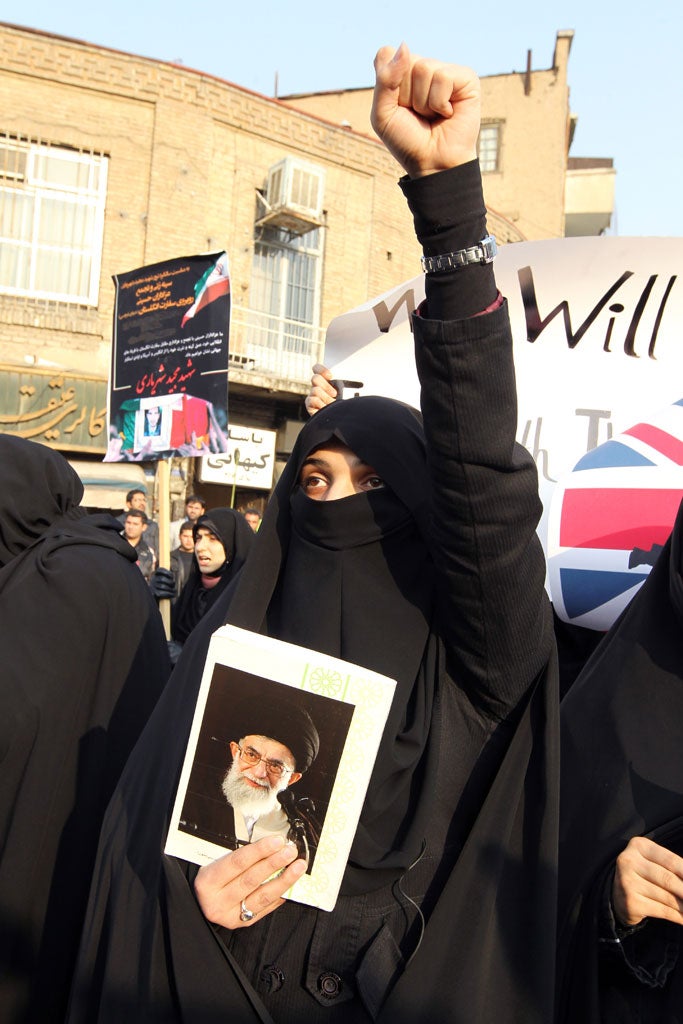Patriot of Persia, By Christopher de Bellaigue

Your support helps us to tell the story
From reproductive rights to climate change to Big Tech, The Independent is on the ground when the story is developing. Whether it's investigating the financials of Elon Musk's pro-Trump PAC or producing our latest documentary, 'The A Word', which shines a light on the American women fighting for reproductive rights, we know how important it is to parse out the facts from the messaging.
At such a critical moment in US history, we need reporters on the ground. Your donation allows us to keep sending journalists to speak to both sides of the story.
The Independent is trusted by Americans across the entire political spectrum. And unlike many other quality news outlets, we choose not to lock Americans out of our reporting and analysis with paywalls. We believe quality journalism should be available to everyone, paid for by those who can afford it.
Your support makes all the difference.As international tension over Tehran's nuclear ambitions continues to grow, it is more important than ever to examine Iran's national history and find clues to this complex and perplexing country. Christopher de Bellaigue's superbly timed biography of Iran's former prime minister, Mohammed Mossadeq, helps us to do so. A Persian scholar who has lived in Iran for more than a decade, he has combed through archive material to add to the existing literature about Mossadeq and his defining act - the nationalisation of the Anglo-Iranian Oil Company in 1951.
His book is a reminder of the dangers of foreign intervention in Iran. He points out that British, and later American, hostility towards Mossadeq proved counter-productive, provoking a deep nationalist wrath that played into his hands. When, in August 1953, the CIA colluded with MI6 to topple him, their actions left a lasting legacy of mistrust and bitterness.
De Bellaigue also portrays some fascinating, and often farcical, stories of political life in Iran. Mossadeq was famously theatrical, often fainting and swooning in public, but we also read of riotous scenes in parliament and of periodic wrestling matches when Mossadeq's followers physically stopped him from submitting his letter of resignation.
The author is particularly interesting when he touches on national attitudes. He notes that Mossadeq articulated and embodied Iran's martyrdom complex, rooted in a long tradition of Shi'ite Islam, the sense of the "dignity of the ordinary Iranian", shaped by foreign oppression, and the "Persian love of age and experience". We should hope that a study of Iran's national psyche, along the lines of Ronald Hingley's classic The Russian Mind, will be De Bellaigue's next literary project.
However, the author is not always convincing. His assertion that Mossadeq was a committed liberal, democrat and parliamentarian falls flat when we learn that he was also a demagogue with an "ambiguous attitude to political violence". And when "parliament gradually fell from his affections as it became a centre of opposition", Mossadeq demanded plenary powers that "bulldozed the separation of powers", whipping up violent mobs to intimidate his critics. Instead, Mossadeq emerges only as a committed opponent of the Shah's despotism. His premiership, had it lasted, would probably not have been much less dictatorial.
Equally, we read that Mossadeq had a vision that was "broad and progressive", based on "egalitarian and redistributive" principles, but also learn of his "apparent indifference to the poverty" of his fellow-countrymen. The author says that Mossadeq had a "brilliant plan" to nationalise British oil interests but then admits the devastating economic price Iran paid. The Iranians were dependent on British engineering skills but Mossadeq, who regarded nationalisation as a moral act, appears to have ignored this. Again, he emerges as a negative force, a committed enemy of British influence in Iran but with no real idea of what to replace it with.
In general, the author's criticisms of British involvement in Iran are too one-sided. He notes disapprovingly that British administrators had a very low view of Iran's ability to rule itself, yet his book is replete with stories of endemic corruption and shocking incompetence. He fails to mention that oil was discovered in Persia, and its proceeds subsequently shared, however imperfectly, decades before other Middle Eastern countries thanks only to the astonishing efforts of British entrepreneurs, explorers and engineers. And if the British had not exerted their own imperial influence on Persia, then other countries- notably imperial or Bolshevik Russia, and later Nazi Germany - would have done so, with rather less civility and efficiency.
Roger Howard's books on the Middle East include 'The Oil Hunters' (Hambledon Continuum)
Join our commenting forum
Join thought-provoking conversations, follow other Independent readers and see their replies
Comments